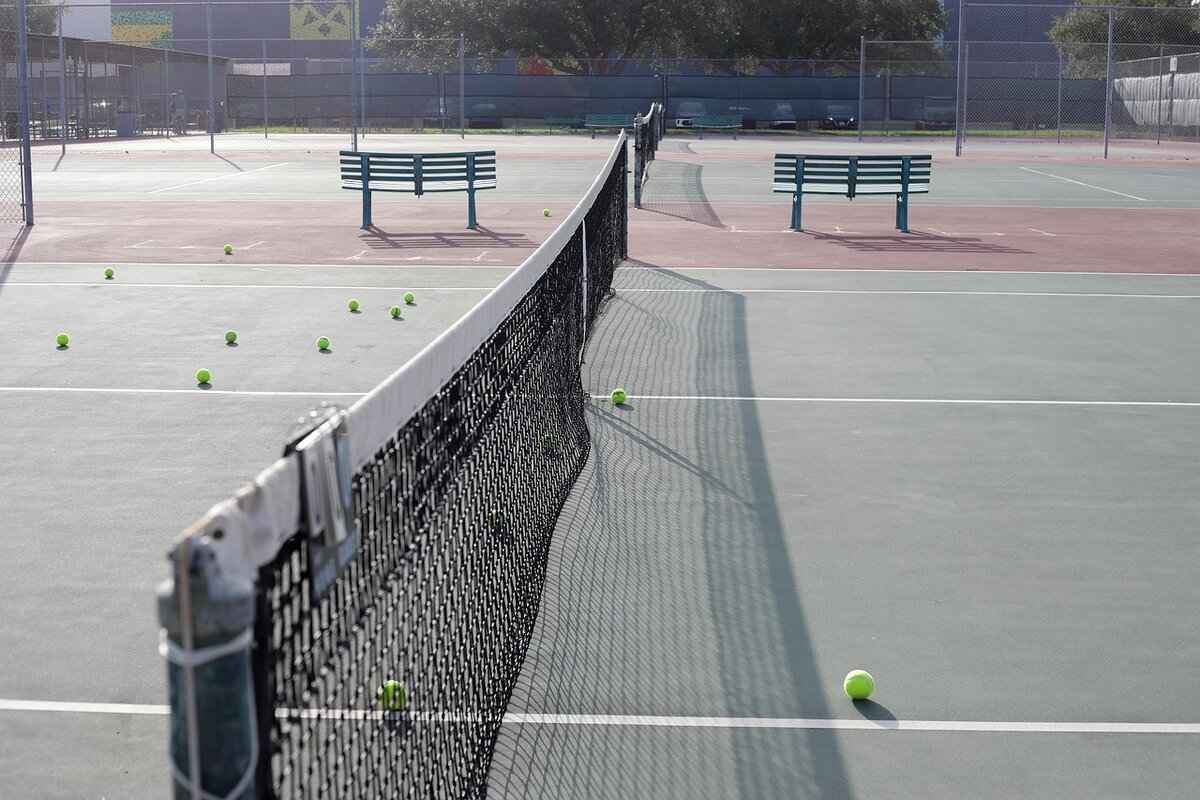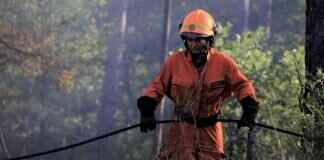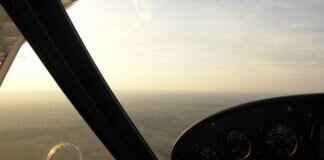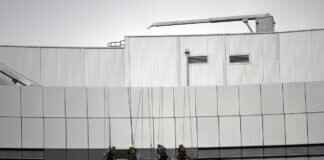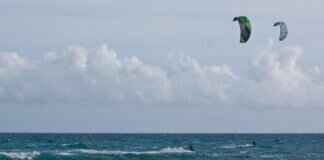Witnesses can play a crucial role in divorce proceedings, influencing the outcome of asset division, custody arrangements, and other legal matters. This article explores their significance, types, and how they can impact divorce cases.
Understanding the Role of Witnesses in Divorce
In divorce cases, witnesses serve as a vital source of testimony that can substantiate claims made by either party. Their accounts can clarify facts surrounding the marriage, parenting, and financial matters, aiding the court in making informed decisions. The presence of credible witnesses can significantly sway a judge’s perception of the case.
Types of Witnesses in Divorce Cases
There are various types of witnesses that may be called upon in divorce cases, including:
- Character Witnesses
- Expert Witnesses
- Fact Witnesses
Each type serves a different purpose and can influence the case’s outcome.
Character Witnesses
Character witnesses provide insights into the personalities and behaviors of the parties involved. Their testimonies can affect custody decisions and perceptions of each party’s reliability and responsibility.
Who Can Be a Character Witness?
Anyone who knows the couple personally, such as friends, family, or colleagues, can serve as a character witness. Their observations can help establish a narrative about the individuals involved, providing context that the court may consider when making decisions.
Impact of Character Witnesses on Custody Decisions
Character witnesses can significantly influence custody decisions by providing evidence of a parent’s ability to care for their children. Their testimonies can sway the court’s perspective on the best interests of the child, making their input invaluable during custody hearings.
Expert Witnesses
Expert witnesses, such as psychologists or financial analysts, provide specialized knowledge that can inform the court on complex issues like mental health or asset valuation. Their insights can directly impact the divorce settlement, particularly in disputes over child custody or the division of substantial assets.
The Importance of Fact Witnesses
Fact witnesses provide direct observations related to the marriage, such as incidents of abuse or financial misconduct. Their testimonies can be pivotal in establishing a factual basis for claims made during the divorce proceedings.
Gathering Evidence from Fact Witnesses
Collecting statements from fact witnesses can be crucial in building a strong case. Their accounts can corroborate or dispute claims made by either party, adding credibility to the evidence presented. This process may involve interviews or written statements that detail their observations.
Preparing Fact Witnesses for Testimony
Preparing fact witnesses for their testimony involves guiding them on what to expect in court. This preparation can help them deliver clear, concise, and relevant information that supports the case, ensuring that their testimony is impactful and aligns with the attorney’s strategy.
How Witnesses Influence Divorce Settlements
Witnesses can significantly impact the negotiation process in divorce settlements. Their testimonies may lead to more favorable outcomes regarding asset division and support arrangements, depending on the evidence presented. The credibility and reliability of the witnesses can also play a role in how negotiations unfold.
Negotiation Strategies Involving Witnesses
Utilizing witness testimonies in negotiations can strengthen one party’s position. Attorneys often leverage the credibility of witnesses to advocate for better settlements, making their role crucial in divorce proceedings. The strategic use of witness testimony can facilitate more amicable resolutions.
Legal Considerations When Using Witnesses
It’s important to understand the legal implications of using witnesses in divorce cases. Attorneys must ensure that witness testimonies comply with court rules and are relevant to the issues at hand. Properly vetting witnesses and preparing them for court can prevent potential legal challenges.
In summary, witnesses are a fundamental component of divorce cases, providing essential insights that can influence the outcomes significantly. Understanding their roles and preparing effectively can enhance the chances of a favorable resolution.

Understanding the Role of Witnesses in Divorce
In the complex landscape of divorce proceedings, the role of witnesses cannot be overstated. They serve as crucial players in providing testimony that can substantiate claims made by either party. Their accounts can clarify facts surrounding the marriage, parenting, and financial matters, thereby aiding the court in making informed decisions.
Witnesses can provide insights that go beyond the personal narratives of the divorcing parties. They can help establish the context of the marriage, including any issues that may have led to the dissolution. For example, a witness may testify to incidents of conflict, financial irresponsibility, or even instances of emotional or physical abuse, all of which can significantly impact the court’s decisions regarding asset division and custody arrangements.
Furthermore, the credibility of a witness is paramount. The court tends to give more weight to testimonies from individuals who have a close relationship with the parties involved, such as friends, family members, or colleagues. These individuals can provide a more intimate understanding of the couple’s dynamics and behaviors, which can be critical in cases involving child custody or the division of assets.
In divorce cases, various types of witnesses may be called upon, each serving a unique purpose:
- Character Witnesses: These individuals provide insights into the personalities and behaviors of the parties involved. Their testimonies can influence custody decisions and perceptions of each party’s reliability.
- Expert Witnesses: Professionals such as psychologists or financial analysts can offer specialized knowledge on complex issues like mental health or asset valuation. Their expertise can significantly inform the court’s decisions.
- Fact Witnesses: These witnesses provide direct observations related to the marriage, such as incidents of abuse or financial misconduct. Their testimonies can establish a factual basis for claims made during the divorce.
Character witnesses can play a pivotal role in influencing custody decisions. Their testimonies can provide evidence of a parent’s ability to care for their children, offering the court a clearer picture of what is in the child’s best interests. For instance, a character witness who can attest to a parent’s involvement in their child’s life can sway the court’s perception significantly.
Expert witnesses are essential in divorce cases where specialized knowledge is required. For instance, a psychologist may evaluate the mental health of a parent, while a financial analyst may assess the value of shared assets. Their insights can help the court navigate complex issues, ultimately impacting the divorce settlement.
Fact witnesses provide essential observations that can corroborate or dispute claims made by either party. Collecting statements from these witnesses can be crucial in building a strong case. It is equally important to prepare them for their testimony, as this ensures they deliver clear, concise, and relevant information that supports the case.
Witnesses can significantly impact the negotiation process in divorce settlements. Their testimonies may lead to more favorable outcomes regarding asset division and support arrangements. Attorneys often leverage the credibility of witnesses to advocate for better settlements, making their role crucial in divorce proceedings.
Understanding the legal implications of using witnesses in divorce cases is vital. Attorneys must ensure that witness testimonies comply with court rules and are relevant to the issues at hand. Properly documenting and presenting witness information can be the difference between a favorable and unfavorable outcome in a divorce case.
In summary, witnesses serve as vital components in divorce proceedings. Their testimonies can clarify complex issues, influence custody arrangements, and impact financial settlements. By understanding the different types of witnesses and their roles, parties involved in divorce can better prepare for the legal challenges ahead.
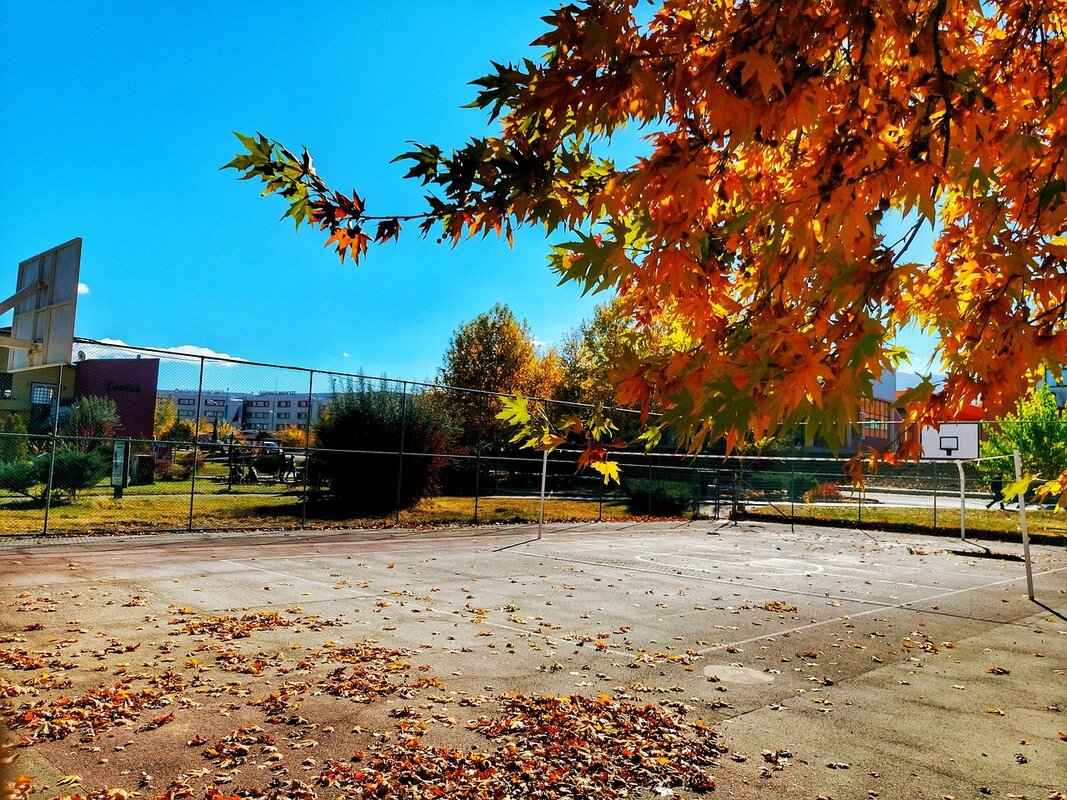
Types of Witnesses in Divorce Cases
In the intricate landscape of divorce proceedings, the role of witnesses is paramount. Witnesses can significantly affect the outcome of cases by providing crucial insights and evidence. This section delves into the different types of witnesses that may be called upon in divorce cases and their respective impacts.
Character Witnesses
Character witnesses are individuals who can provide testimony regarding the personality, behavior, and overall character of one or both spouses. Their insights can be pivotal, especially in custody disputes, as they can help establish a narrative about the parent’s capabilities and responsibilities.
- Who Can Be a Character Witness? Anyone with a personal relationship to the couple, such as friends, family members, or colleagues, can serve as a character witness. Their observations and experiences can provide the court with a fuller picture of the individuals involved.
- Impact on Custody Decisions: Character witnesses can sway the court’s perception regarding which parent may be more suitable for custody. Their testimonies can highlight positive traits or behaviors that may be critical in determining the best interests of the child.
Expert Witnesses
Expert witnesses bring specialized knowledge to the case, offering insights that are beyond the average person’s understanding. These may include psychologists, financial analysts, or child development specialists. Their expertise can clarify complex issues such as mental health evaluations or asset valuations.
- Role of Expert Witnesses: For instance, a psychologist might evaluate a parent’s mental health, which can be a significant factor in custody arrangements. Similarly, a financial expert can assess the value of assets, influencing settlement negotiations.
Fact Witnesses
Fact witnesses provide direct observations related to the marriage, which can include incidents of behavior, financial dealings, or other relevant events. Their testimonies are often critical in establishing a factual basis for claims made during the divorce.
- Gathering Evidence: Collecting statements from fact witnesses can build a robust case. Their accounts can corroborate or dispute claims, adding weight to the evidence presented in court.
- Preparing Fact Witnesses: Proper preparation of fact witnesses is essential. This involves guiding them on what to expect during testimony, ensuring they can communicate clearly and effectively.
How Witnesses Impact Divorce Settlements
The presence of witnesses can significantly influence negotiations in divorce settlements. Testimonies can lead to more favorable outcomes regarding asset division and support arrangements, depending on the strength of the evidence presented.
- Negotiation Strategies: Attorneys often utilize witness testimonies as leverage in negotiations. The credibility of a character or expert witness can enhance one party’s position, making it crucial to understand how to effectively present these testimonies.
- Legal Considerations: It’s vital to consider the legal implications of using witnesses in divorce cases. Attorneys must ensure that witness testimonies adhere to court rules and are pertinent to the issues at hand.
In conclusion, the types of witnesses in divorce cases—character, expert, and fact witnesses—each play a unique and significant role in influencing the proceedings. Understanding their functions can empower individuals navigating divorce to better prepare their cases and potentially achieve more favorable outcomes.
Character Witnesses
In the complex landscape of divorce proceedings, play a pivotal role in shaping the court’s understanding of the individuals involved. These witnesses provide invaluable insights into the personalities, behaviors, and overall character of the parties, which can significantly influence judicial decisions, particularly regarding custody and asset division.
A character witness is someone who knows one of the parties involved in a divorce well enough to offer testimony about their character traits and behaviors. Their insights can help the court gauge the reliability and responsibility of each party. This is especially important in custody disputes, where the court must determine which parent is better suited to provide a stable and nurturing environment for the children.
Character witnesses can come from various backgrounds. They may include:
- Friends: Long-time friends can provide personal anecdotes that illustrate a party’s character.
- Family Members: Relatives can offer insights into a party’s upbringing and family dynamics.
- Colleagues: Professional acquaintances can testify about a party’s work ethic and behavior in a professional setting.
Each of these individuals can contribute unique perspectives that help paint a comprehensive picture of the party’s character.
The testimonies of character witnesses can have a profound impact on custody arrangements. For instance, if a witness can attest to a parent’s nurturing nature and commitment to their children, this information can be compelling evidence in favor of that parent. Conversely, negative testimony regarding a party’s behavior, such as irresponsibility or instability, can adversely affect their chances of gaining custody.
Preparation is key when it comes to character witnesses. Attorneys often work closely with these individuals to ensure they understand the court process and the types of questions they may face. This preparation can include:
- Clarifying Expectations: Witnesses should know what to expect during their testimony.
- Reviewing Key Points: Attorneys may help witnesses focus on relevant aspects of their observations that pertain to the case.
- Practicing Responses: Mock questioning can help witnesses feel more comfortable and articulate during the actual testimony.
While character witnesses can provide essential insights, they also face challenges. For example, their testimonies may be scrutinized for bias, especially if they have close personal ties to one party. Courts may question the objectivity of a character witness, particularly if they have a vested interest in the outcome of the case.
It is crucial for character witnesses to adhere to legal guidelines when providing testimony. Their statements must be relevant to the case and should not include hearsay or personal opinions that lack factual basis. Understanding these legal boundaries can help ensure that their testimony is both credible and impactful.
In summary, character witnesses play an essential role in divorce cases, particularly in custody disputes. Their insights into the parties’ behaviors and personalities can significantly influence the court’s decisions. By understanding their importance, the types of individuals who can serve as witnesses, and the preparation required, parties can effectively leverage character witness testimony to support their case.
Who Can Be a Character Witness?
In the context of divorce proceedings, the role of a character witness is vital. A character witness can be anyone who has a personal relationship with the couple, providing insights into their behavior, personality, and overall character. This can include:
- Friends: Close friends often have intimate knowledge of the couple’s dynamics and can provide anecdotal evidence about their interactions, parenting styles, and lifestyle choices.
- Family Members: Relatives can offer unique perspectives on the couple’s history, including any significant events that may have influenced their relationship.
- Colleagues: Coworkers can testify to the individual’s work ethic, reliability, and how they handle stress, which can be relevant in custody or financial disputes.
Character witnesses help to create a narrative that can significantly influence court decisions. Their testimonies can establish a context for the court to understand the behavior and motivations of each party involved in the divorce. For instance, a witness might describe a parent’s involvement in their child’s life, thereby supporting claims for custody.
Moreover, the credibility of character witnesses can vary based on their relationship to the parties involved. Witnesses who have known the couple for a long time may provide more reliable accounts than those who have only recently become acquainted. This depth of knowledge can lend weight to their testimonies, making them more impactful in the eyes of the court.
In addition, character witnesses can help to counter negative claims made by the opposing party. If one spouse alleges that the other is irresponsible or neglectful, a character witness can offer a contrasting view, highlighting positive traits and behaviors. This can be particularly important in custody battles, where the court’s primary concern is the well-being of the child.
It’s also essential to prepare character witnesses for their role in court. They should be made aware of the types of questions they may face and the importance of presenting their observations in a clear, concise manner. Effective preparation can help ensure that their testimonies are delivered confidently and persuasively.
In summary, character witnesses are a crucial element in divorce cases, providing valuable insights that can shape the court’s understanding of the individuals involved. Their observations can help establish a narrative that not only reflects the personalities of the parties but also influences critical decisions regarding custody and asset division.
Ultimately, the inclusion of character witnesses can enrich the evidence presented in a divorce case, contributing to a more comprehensive understanding of the circumstances surrounding the marriage. As such, selecting the right witnesses and preparing them adequately can be a strategic advantage in divorce proceedings.
Impact of Character Witnesses on Custody Decisions
In custody battles, the role of character witnesses can be pivotal. These individuals, who know the parents well, can provide valuable insights into their parenting abilities, stability, and overall character. The testimonies of character witnesses can significantly influence the court’s perception of what constitutes the best interests of the child.
Character witnesses typically include friends, family members, teachers, and colleagues who can speak to the parent’s day-to-day interactions with their children. Their observations can help paint a comprehensive picture of a parent’s capability to provide a nurturing and supportive environment. The court often seeks to understand the emotional and psychological well-being of the child, making the input from these witnesses essential.
When character witnesses testify, they often address several key areas:
- Parenting Skills: They may discuss the parent’s involvement in daily activities, such as helping with homework, attending school functions, or engaging in recreational activities.
- Emotional Support: Witnesses can provide evidence of how a parent offers emotional stability and support to their children, which is crucial during the tumultuous times of a divorce.
- Relationship Dynamics: They can describe the parent-child relationship, shedding light on the bond and the level of attachment that exists.
- Community Involvement: Character witnesses may also highlight the parent’s involvement in community activities, which can reflect positively on their character and commitment to their children’s upbringing.
Moreover, the credibility of character witnesses can greatly affect the weight of their testimonies. A witness who has a longstanding relationship with the parent and who has observed their behavior over time may be viewed as more credible than someone with a more casual acquaintance. Therefore, selecting the right witnesses is crucial.
It is also important to note that the court is not only interested in positive testimonies. The presence of a character witness who can provide a balanced view, including any negative aspects, can also be beneficial. This approach demonstrates transparency and honesty, which can resonate well with judges.
In many cases, the testimonies of character witnesses can sway custody decisions. For example, if multiple witnesses testify that a parent consistently demonstrates responsibility and care, it may lead the court to favor that parent in custody arrangements. Conversely, if witnesses reveal concerning behaviors, such as neglect or inappropriate conduct, it could adversely affect a parent’s custody claim.
Ultimately, the impact of character witnesses extends beyond just their testimonies. Their presence in court can serve to humanize the parents involved in the custody dispute, allowing the judge to see them not just as litigants but as individuals with strengths and weaknesses. This humanizing effect can influence the judge’s overall impression and decision-making process.
In conclusion, character witnesses play a critical role in custody decisions by providing insights that can help the court understand the family dynamics and the best interests of the child. Their testimonies can significantly sway the court’s perspective, making it essential for parents to carefully consider who they choose to represent their character during these proceedings.
Expert Witnesses
play a pivotal role in divorce proceedings, offering specialized knowledge that can significantly influence the outcome of various legal matters. Their expertise is particularly valuable in areas such as mental health assessments and financial valuations, which are often complex and require a deep understanding of the subject matter.
In divorce cases, the court must make informed decisions regarding asset division, child custody, and support arrangements. This is where expert witnesses come into play, providing insights that help clarify intricate issues. For instance, a psychologist may assess the mental health of one or both parties, shedding light on how psychological factors can affect parenting abilities or the overall dynamics of the family unit. This information can be crucial in custody disputes, as the court aims to determine the best interests of the child.
Similarly, financial analysts can offer valuable testimony regarding asset valuation and financial misconduct. They can help the court understand the true value of marital assets, including properties, investments, and retirement accounts. This is essential for ensuring a fair division of assets during the divorce settlement process. In cases where one spouse has been less involved in financial matters, an expert witness can clarify discrepancies and provide a clearer picture of the couple’s financial landscape.
Moreover, expert witnesses can assist in identifying hidden assets, which is particularly relevant in high-net-worth divorces. Their analyses can reveal financial behaviors that may not be immediately evident, such as underreported income or undisclosed investments. This information can lead to more equitable settlements and prevent one party from being unfairly disadvantaged.
When selecting an expert witness, it is crucial to ensure they possess the appropriate qualifications and experience. The credibility of the expert can significantly impact the weight of their testimony in court. Attorneys often conduct thorough research to find experts who have a proven track record in their respective fields, ensuring that the information presented is both reliable and relevant.
In addition to providing testimony, expert witnesses can also assist attorneys in preparing for trial. They can help draft reports, analyze data, and develop strategies for presenting complex information in an understandable manner. This collaboration can enhance the overall effectiveness of the case and ensure that the attorney is well-prepared to advocate for their client’s interests.
Furthermore, the use of expert witnesses can sometimes facilitate settlement negotiations. When both parties are aware of the potential implications of expert testimony, they may be more inclined to reach an agreement outside of court. This can save time, reduce legal costs, and minimize the emotional toll associated with prolonged litigation.
In summary, expert witnesses are invaluable assets in divorce cases, providing critical insights that can shape the court’s decisions on complex issues. Their specialized knowledge not only aids in understanding mental health and financial matters but also enhances the overall integrity of the legal process. As such, engaging qualified expert witnesses can lead to more favorable outcomes for individuals navigating the challenges of divorce.

The Importance of Fact Witnesses
In divorce proceedings, the role of fact witnesses is often underestimated, yet their contributions can be vital in establishing the truth behind various claims made by the parties involved. Fact witnesses are individuals who provide direct observations related to the marriage, offering insights that can significantly influence the outcome of the case.
What Are Fact Witnesses?
Fact witnesses are typically individuals who have observed relevant incidents or behaviors during the marriage. This may include friends, family members, or acquaintances who can testify about specific events, such as instances of abuse, financial misconduct, or other behaviors that may affect the divorce settlement. Their firsthand accounts can help the court understand the dynamics of the marriage and the context of the claims presented.
How Fact Witnesses Establish a Factual Basis
The testimonies of fact witnesses can be pivotal in establishing a factual basis for claims made during a divorce. For instance, if one party alleges that the other engaged in financial mismanagement, a fact witness who observed the couple’s financial dealings can provide evidence to support or refute this claim. This kind of testimony adds credibility to the allegations and helps the court make informed decisions based on real-life observations rather than mere assertions.
Gathering Evidence from Fact Witnesses
Collecting statements from fact witnesses is a critical step in building a strong case. Attorneys often conduct interviews to gather detailed accounts of what the witnesses observed. This process may involve:
- Documenting specific incidents and dates.
- Understanding the witness’s relationship with the parties involved.
- Assessing the witness’s credibility and willingness to testify.
By compiling comprehensive statements, attorneys can present a cohesive narrative that supports their client’s position in court.
Preparing Fact Witnesses for Testimony
Preparation is key when it comes to fact witnesses. Attorneys must guide witnesses on what to expect during their testimony, including:
- Understanding court procedures.
- Providing clear and concise accounts of their observations.
- Staying focused on relevant facts and avoiding speculation.
Proper preparation can enhance the effectiveness of the witness’s testimony, ensuring that it aligns with the legal strategy of the case.
Legal Considerations When Using Fact Witnesses
It is essential to consider the legal implications of using fact witnesses in divorce cases. Attorneys must ensure that:
- The witness’s testimony complies with court rules.
- The information provided is relevant to the issues at hand.
- Witnesses are prepared to answer cross-examination questions.
Understanding these legal aspects helps in leveraging the testimony effectively while minimizing potential challenges during the proceedings.
The Impact of Fact Witnesses on Divorce Outcomes
Ultimately, the testimonies provided by fact witnesses can significantly influence the outcome of divorce cases. Their observations can lead to more favorable decisions regarding asset division, custody arrangements, and other critical issues. By presenting a clear factual basis for claims, fact witnesses help the court navigate the complexities of each case, ensuring that decisions are made based on credible evidence.
In conclusion, fact witnesses play a crucial role in divorce proceedings. Their direct observations can establish a factual basis for claims, enhance the credibility of the parties involved, and ultimately influence the court’s decisions. Engaging with fact witnesses effectively can provide a significant advantage in navigating the complexities of divorce law.
Gathering Evidence from Fact Witnesses
is a vital aspect of divorce proceedings, where the credibility and reliability of testimonies can significantly influence the outcome of the case. Fact witnesses are individuals who have direct knowledge of events and circumstances surrounding the marriage, and their statements can either support or challenge the claims made by the parties involved.
In divorce cases, the importance of fact witnesses cannot be overstated. Their testimonies can provide essential context regarding issues such as marital misconduct, financial discrepancies, and even child custody matters. By presenting firsthand accounts, fact witnesses help establish a factual basis that the court can rely on when making decisions.
When preparing to gather evidence from fact witnesses, it is crucial to approach the process methodically. Here are some key steps to consider:
- Identify Potential Witnesses: Begin by listing individuals who have observed relevant events or situations. This may include friends, family members, coworkers, or neighbors who can provide insight into the dynamics of the marriage.
- Conduct Interviews: Speak with potential witnesses to gauge their willingness to testify. During these discussions, ask open-ended questions to encourage them to share their observations and experiences.
- Document Statements: Take detailed notes or record the conversations (with permission) to ensure accuracy. These statements should outline the witness’s observations and any specific incidents they recall.
- Prepare Witnesses for Testimony: Once you have gathered statements, it is essential to prepare witnesses for what to expect in court. Provide them with information about the process, potential questions they may face, and the importance of presenting clear and honest testimonies.
Fact witnesses can provide critical evidence in various areas:
- Incidents of Abuse: Witnesses who have observed instances of domestic violence or emotional abuse can offer testimonies that may influence custody and visitation arrangements.
- Financial Misconduct: Individuals who have witnessed financial improprieties, such as hidden assets or extravagant spending, can help establish a clearer picture of the couple’s financial situation.
- Parenting Practices: Witnesses who have seen how each parent interacts with the children can provide valuable insights into the parenting capabilities of both parties.
Moreover, the credibility of fact witnesses plays a significant role in how their testimonies are perceived by the court. Factors such as the witness’s relationship to the parties involved, their level of knowledge about the situation, and their demeanor while testifying can all impact the weight given to their statements.
It is also important to consider the legal implications of using fact witnesses. Attorneys must ensure that the testimonies comply with court rules and are relevant to the issues at hand. This may involve filing necessary paperwork to formally include witnesses in the case and ensuring that they are properly summoned to court.
In conclusion, gathering evidence from fact witnesses is a fundamental component of building a strong case in divorce proceedings. By carefully identifying, interviewing, and preparing witnesses, attorneys can leverage their testimonies to support their clients’ claims and strengthen their overall position in negotiations and court proceedings. The insights provided by fact witnesses can be invaluable in navigating the complexities of divorce and achieving a fair resolution.
Preparing Fact Witnesses for Testimony
is a critical aspect of the legal process, especially in divorce cases. The role of fact witnesses cannot be overstated; they provide firsthand accounts that can significantly influence the outcome of the proceedings. Proper preparation is essential to ensure that these witnesses deliver their testimonies effectively and confidently.
When preparing fact witnesses, it is vital to set clear expectations about what they will encounter in the courtroom. This includes familiarizing them with the courtroom environment, the judge, and the attorneys involved. By doing so, witnesses can feel more at ease and focused when it comes time for them to testify.
Additionally, it is important to inform witnesses about the types of questions they may face during their testimony. This includes both direct questions from the attorney calling them to the stand and potential cross-examination questions from the opposing party. By anticipating these inquiries, witnesses can prepare their responses, ensuring they remain clear and concise while addressing relevant facts.
One effective method for preparing fact witnesses is to conduct mock testimony sessions. These practice runs allow witnesses to rehearse their answers in a controlled environment, helping them to articulate their thoughts and address any uncertainties they may have. During these sessions, attorneys can provide constructive feedback, guiding witnesses on how to present their information in a manner that supports the case.
Furthermore, it is crucial to emphasize the importance of staying truthful and not embellishing their accounts. Witnesses must understand that honesty is paramount, as any discrepancies in their testimony can undermine their credibility and potentially harm the case. Attorneys should encourage witnesses to focus on their personal observations and experiences without attempting to speculate or provide opinions outside their knowledge.
In addition to preparing witnesses for the content of their testimony, attorneys should also discuss the emotional aspects of testifying. Court proceedings can be stressful, and it is essential for witnesses to manage their anxiety effectively. Techniques such as deep breathing exercises or visualization can help them remain calm and collected during their testimony.
Moreover, attorneys should remind witnesses to maintain a professional demeanor in court. This includes dressing appropriately, addressing the judge respectfully, and avoiding any confrontational behavior. A witness’s attitude can greatly impact how their testimony is perceived, making it vital to present themselves as credible and reliable individuals.
Finally, after the preparation process, it is important to follow up with witnesses as the court date approaches. This can help reinforce their confidence and ensure they feel supported throughout the process. By maintaining open lines of communication, attorneys can address any last-minute concerns and provide reassurance to their witnesses.
In summary, preparing fact witnesses for their testimony is a multifaceted process that requires careful planning and execution. By guiding them through the expectations of court, practicing their responses, emphasizing honesty, and managing their emotional well-being, attorneys can help witnesses deliver effective testimonies that bolster their case. This preparation ultimately contributes to a more favorable outcome in divorce proceedings.

How Witnesses Influence Divorce Settlements
In the complex landscape of divorce proceedings, the role of witnesses can be pivotal. Their testimonies can greatly influence the negotiation process and ultimately affect the outcomes of asset division, support arrangements, and custody decisions. Understanding how witnesses can impact divorce settlements is essential for both parties involved in a divorce.
Witnesses as Key Players in Negotiations
Witnesses serve as credible sources of information that can back up or refute claims made by either party. Their testimonies can provide clarity on various aspects of the marriage, including financial matters and parenting capabilities. This clarity can lead to more favorable outcomes during negotiations, as parties may be more inclined to settle when presented with strong evidence from credible witnesses.
Types of Witnesses and Their Impact
- Character Witnesses: These individuals provide insights into the personality and behavior of the parties involved. Their testimonies can significantly sway the court’s view on custody arrangements, as they can attest to a parent’s ability to care for their children.
- Expert Witnesses: Professionals such as psychologists or financial advisors can offer specialized knowledge that informs the court on complex issues. Their insights can be critical in matters such as mental health evaluations or asset valuations, thus influencing the divorce settlement’s terms.
- Fact Witnesses: These witnesses provide direct observations related to the marriage, such as instances of financial misconduct or other relevant incidents. Their accounts can establish a factual basis for claims made during the divorce, making their testimonies essential in negotiations.
Negotiation Strategies Utilizing Witness Testimonies
In divorce negotiations, attorneys often utilize witness testimonies to strengthen their client’s position. By presenting credible witnesses, they can advocate for better settlements. For instance, a character witness may help establish a narrative that supports one parent’s claim for custody, while an expert witness may provide evidence that justifies a particular asset division.
Legal Considerations When Involving Witnesses
It is crucial to understand the legal implications of using witnesses in divorce proceedings. Attorneys must ensure that the testimonies comply with court rules and are relevant to the case’s issues. This includes preparing witnesses adequately, guiding them on what to expect in court, and ensuring their testimonies are clear and concise.
Building a Strong Case with Witnesses
Collecting evidence from witnesses can be a game-changer in divorce cases. Attorneys should focus on gathering comprehensive statements that corroborate or dispute claims made by either party. This not only adds credibility to the evidence presented but also strengthens the overall case.
Preparing Witnesses for Testimony
Effective preparation of witnesses is vital for ensuring they deliver impactful testimonies. Attorneys should conduct mock examinations, helping witnesses become comfortable with the court process. This preparation can lead to more persuasive testimonies that resonate with the judge and jury.
The Bottom Line on Witnesses in Divorce Settlements
Witnesses have the potential to significantly influence divorce settlements. Their testimonies can lead to more favorable outcomes in negotiations, affecting everything from asset division to custody arrangements. Understanding the types of witnesses, their roles, and how to effectively utilize their testimonies is essential for anyone navigating the divorce process.
Negotiation Strategies Involving Witnesses
are a critical aspect of divorce proceedings, where the stakes can be incredibly high. The presence of witnesses can not only bolster one party’s position but also influence the overall outcome of negotiations. Understanding how to effectively utilize witness testimonies can be a game changer in achieving favorable settlements.
In any divorce case, the negotiation process is often fraught with emotional and financial complexities. Witnesses can provide credibility and support to the claims made by either party. Their testimonies can illuminate key issues such as child custody, asset division, and spousal support, making it essential for attorneys to strategically incorporate them into negotiations.
Types of Witnesses and Their Roles
- Character Witnesses: These individuals can speak to the personality and behavior of the parties involved. Their insights may sway the court’s perception, particularly in custody matters.
- Expert Witnesses: Professionals such as psychologists or financial advisors can provide specialized insights that inform the court on complex issues, potentially leading to more favorable outcomes.
- Fact Witnesses: These witnesses offer direct observations related to the marriage. Their testimonies can be crucial in establishing a factual basis for claims, especially in cases involving allegations of misconduct.
Building a Strong Case with Witness Testimonies
To leverage the power of witness testimonies effectively, attorneys should focus on gathering comprehensive statements that are both relevant and compelling. This involves conducting thorough interviews with potential witnesses to extract pertinent details that support their client’s position. By compiling a strong narrative through witness accounts, attorneys can present a more persuasive case during negotiations.
Preparing Witnesses for Testimony
Preparation is key when it comes to witness testimonies. Attorneys must guide witnesses through the process, explaining what to expect in court and helping them articulate their observations clearly. This preparation not only boosts the witnesses’ confidence but also ensures that their testimonies are coherent and impactful.
Utilizing Witnesses in Negotiation Strategies
In negotiations, the strategic use of witness testimonies can create leverage. For example, if one party can present a credible character witness who can attest to their parenting abilities, it may compel the other party to consider more favorable custody arrangements. Similarly, expert witnesses can provide insights that may sway negotiations regarding asset division or spousal support.
Additionally, the presence of fact witnesses can be a deterrent against dishonesty or exaggeration during negotiations. Knowing that there are individuals who can corroborate facts can encourage both parties to negotiate in good faith, ultimately leading to a more amicable resolution.
Legal Considerations in Using Witnesses
While the benefits of utilizing witnesses are clear, it’s crucial to navigate the legal landscape carefully. Attorneys must ensure that witness testimonies comply with court rules and are relevant to the issues at hand. This includes being aware of the rules of evidence and understanding how to effectively present witness testimonies in court.
In summary, are an essential element of divorce proceedings. By understanding the types of witnesses available, preparing them adequately, and strategically incorporating their testimonies into negotiations, attorneys can significantly enhance their client’s position. This approach not only aids in achieving better settlements but also contributes to a more equitable resolution of complex divorce matters.
Legal Considerations When Using Witnesses
In divorce proceedings, the use of witnesses can significantly impact the outcomes of various legal matters, including asset division and child custody arrangements. Understanding the legal implications of utilizing witnesses is essential for attorneys and clients alike. This section delves into the critical aspects that must be considered when integrating witness testimony into divorce cases.
Compliance with Court Rules
One of the foremost legal considerations is ensuring that witness testimonies comply with court rules. Each jurisdiction has specific guidelines regarding the admissibility of witness statements, including who can testify and the nature of the testimony. Attorneys must be well-versed in these regulations to effectively prepare their witnesses and present their testimonies in court.
Relevance of Testimony
Witness testimony must be relevant to the issues at hand. This means that the information provided should directly relate to the claims being made in the divorce case. For instance, a character witness may provide insights into a parent’s ability to care for children, while a fact witness might testify about incidents that demonstrate financial misconduct. Attorneys must assess the relevance of each witness’s potential testimony to ensure it supports their case.
Types of Witnesses and Their Legal Impact
- Character Witnesses: These individuals can provide insight into a party’s character, which may influence custody decisions. However, their testimonies must be based on personal knowledge and observations.
- Expert Witnesses: Professionals such as psychologists or financial analysts can offer specialized knowledge that aids the court in understanding complex issues. Their credibility is crucial, and they must be qualified to testify in their respective fields.
- Fact Witnesses: These witnesses provide direct observations regarding the marriage. Their testimonies can be pivotal in establishing facts related to abuse or financial misconduct, making their preparation essential.
Preparing Witnesses for Court
Preparation is key when it comes to witness testimony. Attorneys should guide their witnesses on what to expect during the court proceedings, including the types of questions they may face and the importance of remaining calm and composed. This preparation helps witnesses deliver clear and concise information, enhancing the credibility of their testimony.
Potential Challenges and Objections
It’s important to anticipate potential challenges to witness testimony. Opposing counsel may object to the admissibility of certain testimonies based on relevance or hearsay. Attorneys must be prepared to defend the inclusion of witness statements by providing a strong legal basis for their relevance and reliability.
Impact on Divorce Settlements
Witness testimonies can also influence negotiations during divorce settlements. The strength of a witness’s testimony may lead to more favorable outcomes regarding asset division or support arrangements. Attorneys often leverage the credibility of their witnesses to advocate for better settlements, further emphasizing the importance of thorough preparation and understanding of legal implications.
In conclusion, the role of witnesses in divorce cases is multifaceted and requires careful consideration of legal standards and relevance. By ensuring compliance with court rules and adequately preparing witnesses, attorneys can significantly enhance their chances of achieving favorable outcomes for their clients in divorce proceedings.
Frequently Asked Questions
- What is the role of witnesses in a divorce case?
Witnesses provide crucial testimony that can help clarify facts about the marriage, parenting, and financial matters. Their insights can influence decisions on asset division and custody arrangements.
- Who can serve as a character witness?
Anyone who knows the couple personally, like friends, family, or colleagues, can be a character witness. Their observations can help shape the court’s understanding of the individuals involved.
- How do expert witnesses impact divorce cases?
Expert witnesses, such as psychologists or financial analysts, bring specialized knowledge to the court. They can provide insights on complex issues, which can significantly affect the outcome of the divorce settlement.
- What are fact witnesses and why are they important?
Fact witnesses offer direct observations about the marriage, like incidents of abuse or financial misconduct. Their testimonies can be pivotal in establishing a factual basis for claims made during the divorce.
- How can witness testimonies influence negotiations?
Witness testimonies can strengthen one party’s position in negotiations, potentially leading to more favorable outcomes. Attorneys often leverage the credibility of witnesses to advocate for better settlements.

